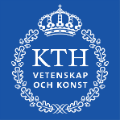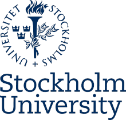On-line Workshop 2021
Introduction (plenary): How can Universities make an impact on Society, relating to SDGs and Covid-19?
Johan Kuylenstierna, Adjunct Professor and Honorary Doctor at Stockholm University, Chair of the Swedish Climate Policy Council
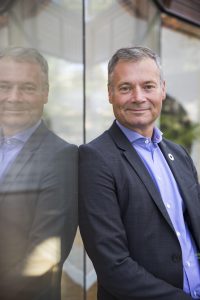
Johan Kuylenstierna is a trained geoscientist with a research focus on climatology. He began his career with polar research but changed tracks to international environmental and development cooperation and has worked with different UN agencies focusing on water, climate and sustainability. He has also, among other things, been CEO of the Stockholm Environment Institute. Today, Johan is chairman of the Swedish Climate Policy Council and adjunct professor and Senior Advisor on Sustainability to the President at Stockholm University. Johan also serves on the boards of Axfoundation, the University of Gothenburg, the MISTRA Research Foundation, Sveaskog and WWF Sweden. He is a lecturer and debater and has a collaboration with the national TV4 Morning News show (on climate related issues). He has been named Sweden’s Most Environmentally Powerful person by the magazine Miljöaktuellt and was one of the “summer host” at National Radio channel P1 in 2017.
Hiroko Akiyama, Professor Emeritus, The University of Tokyo
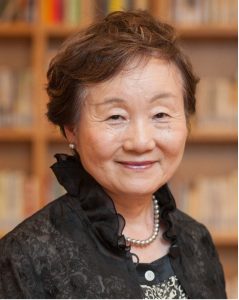
Hiroko Akiyama, a gerontologist, is professor of emeritus at the University of Tokyo and the former vice president of Science Council of Japan. Professor Akiyama has conducted a number of cross-national surveys and is widely recognized as an expert on issues of global aging. She is known for the long-running research on the elderly in Japan—tracking the aging patterns of approximately 6,000 Japanese elderly over 30 years. She also initiated social experiment projects that pioneer to re-design communities to meet the needs of the highly aged society, and more recently Kamakura Living Lab, a platform for open innovation by co-creation among users, industry, government and academia. She started the Institute of Gerontology at University of Tokyo in 2006. Professor Akiyama received Ph.D. in psychology from University of Illinois, the United States.
Theme 1: The Brain and Society
Coordinator
Haruhiko Bito, Professor, The University of Tokyo
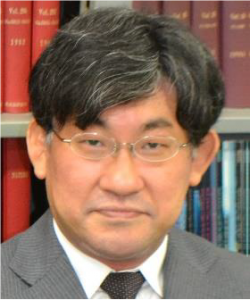
Dr. Bito is currently Professor and Chair of the Department of Neurochemistry, and also Chair of the Neurosciences Program at the University of Tokyo School of Medicine. The ambition of Dr. Bito’s laboratory is to go beyond just understanding the makeup of the synapses, and to tease apart the molecular, cellular and systems principles underlying activity-dependent changes in neuronal circuitry during learning and memory.
In particular, the Bito laboratory pioneered in deciphering the intricate and interactive relationship between the information encoded in the genome and the ongoing synaptic activity, and showed the critical role of CREB-Arc signaling in controlling long-term memory formation and maintenance of long-lasting changes within the brain.
Haruhiko Bito graduated from the University of Tokyo with an MD and a PhD in Biochemistry in 1993. After finishing a postdoc in Molecular and Cellular Physiology at Stanford as a HFSP long-term fellow, Dr. Bito started his own laboratory in Pharmacology at Kyoto University in 1997. He expanded his research group significantly, when he moved to the Department of Neurochemistry at the University of Tokyo in 2003. He is the Leading Investigator of a National Consortium Project on “Brain information dynamics underlying multi-area interconnectivity and parallel processing”.
Per Nilsson, Associate Professor, Karolinska Institutet

I am working on finding the molecular underpinnings of Alzheimer’s disease. My background is a PhD in molecular biotechnology from Uppsala University, Sweden. I did my postdoc at RIKEN Brain Science Institute, Japan. Since 2016 I am heading a research group at Department of Neurobiology, Care Sciences and Society, Karolinska Institutet, Sweden, where I am also vice/acting head of division of Neurogeriatrics. Our research is focused on preclinical studies using animal models of Alzheimer’s in combination with clinical studies. The research is very much focused on protein homeostasis and the role of autophagy in amyloid β and tau metabolism, the two hallmarks of Alzheimer’s disease. This has led to pivotal findings showing that autophagy mediates the secretion of Alzheimer-causing amyloid β and that impaired autophagy during Alzheimer progression leads to neurodegeneration.
Speakers
Monday, September 27th
Prevention and Therapy of Alzheimer Disease
Alzheimer disease is a major challenge for the aging population in the world. The development of new treatment strategies requires deeper understanding of the brain and how it is affected upon normal and diseased aging.
Ronald Van den Berg, Senior Lecturer, Stockholm University
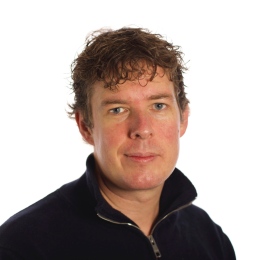
Ronald holds a PhD degree in Computer Science (University of Groningen, Netherlands, 2009) and was a postdoc at the Baylor College of Medicine (Houston, USA, 2009-2012) and Cambridge University (UK, 2013-2015). Thereafter, he was a researcher at the Department of Psychology of Uppsala University from 2015 to 2019. He currently is a senior lecturer in quantitative research methods at the Department of Psychology at Stockholm University. His main research interest is to understand the information-processing mechanisms behind human visual perception, decision making, and working memory, with a special focus on questions about rationality. His primary research tools are behavioural (psychophysical) experimentation, mathematical modelling, and – since recently – neuroimaging.
Tatsuo Mano, Assistant Professor, The University of Tokyo

Tatsuo Mano is an assistant professor of the Department of Neurology in the University of Tokyo Hospital. He obtained his medical license in 2007, and is working as a neurologist. He earned his PhD in Medicine from the University of Tokyo, Japan in 2016. He continued his research as a research associate at the University of Tokyo Hospital.
His research interest is epigenetic changes occurring in the neuronal cells in the sporadic neurodegenerative diseases, including Alzheimer’s disease and Parkinson’s disease. With neuro-epigenetic approach, he found several novel molecules contributing to the pathomechanism of these diseases. His approach is based on the combination of clinical experience and molecular biology, which broaden his research concept.
Miia Kivipelto, Professor, Karolinska Institutet
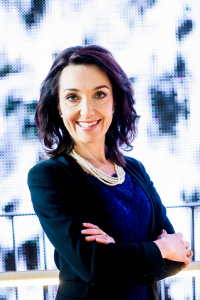
Miia Kivipelto, MD, PhD, is Professor in Clinical Geriatrics at Karolinska Institutet (KI), Center for Alzheimer Research and senior geriatrician and Director for Research & Development of Medical Unit Aging at Karolinska University Hospital, Stockholm, Sweden. Part of her Nordic Brain Network multidisciplinary research team (around 100 researchers and clinical staff) is located at University of Eastern Finland and Imperial College London, UK, where she has part time position as Professor. Her frontline research findings have been published in leading journals (330+ publications, H-index 76) and she has received numerous prestigious awards. Dr. Kivipelto’s translational research focuses on the prevention, early diagnosis and treatment of cognitive impairment, dementia and Alzheimer’s disease (AD). Through epidemiological studies, Prof. Kivipelto has identified various lifestyle and vascular risk factors for dementia and interactions with genetic factors and clarified underlying mechanisms. She is the PI of the landmark FINGER trial and founder and scientific leader of World-Wide FINGERS network. Professor Kivipelto is often invited to leading global dementia conferences and task forces.
Takeshi Iwatsubo, Professor, The University of Tokyo

Takeshi Iwatsubo is a professor of Neuropathology at the Graduate School of Medicine, The University of Tokyo. He received training in neurology and neuropathology at the Univ. Hospital of Tokyo. Since he had an independent laboratory at the School of Pharmaceutical Sciences, Univ. Tokyo, on 1992, he has contributed to the studies of human neurodegenerative disorders, especially Alzheimer’s and Parkinson disease, using multidisciplinary approaches. He demonstrated that Aâ42 is the initially deposited species in senile plaque amyloid, and that mutations in presenilin genes cause familial AD by increasing the production of Aâ42. He also elucidated the process of ã-secretase complex formation. He has performed biochemical analysis of Lewy bodies, showing that á-synuclein, especially a hyperphoshorylated form, is a component of Lewy bodies. On the clinical front, Iwatsubo is the PI of the Japanese AD Neuroimaging Initiative (J-ADNI), aiming at establishing standard surrogate markers for clinical trials of disease-modifying therapies for AD.
Tuesday, September 28th
Brain disease biology, neural circuit basis and cognition for future therapy
Most, if not all, brain disorders cause wide-spread dysregulation of both neural processing and subsequent behavior. Development of novel treatments therefore often need to consider the full scale of measurements, from neuron to behavior.
Teruyuki Tanaka, Associate Professor, The University of Tokyo
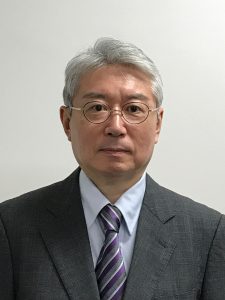
Teruyuki Tanaka, MD, PhD, is an Associate Professor of Developmental Medical Sciences at the University of Tokyo, Graduate School of Medicine. He graduated from Nagoya University School of Medicine and trained as a neuropediatrician at the Department of Pediatrics, Tokyo Women’s Medical University. He did his postdoctoral research at the National Institute of Dental and Craniofacial Research in the U.S. National Institutes of Health (1998-2000) and at the University of California, San Diego (2000-2005), aiming to elucidate the mechanisms of neuronal migration disorders caused by the loss of Cyclin-dependent kinase 5 (CDK5), Doublecortin, and LIS1. He moved to the National Center for Child Health and Development in Tokyo in 2006, and then joined the current department in 2007.
His focus is to elucidate the molecular mechanisms of Cyclin-dependent kinase-like 5 (CDKL5) Deficiency Disorder, a severe developmental epileptic encephalopathy caused by the loss-of-function (LOF) of CDKL5.He developed Cdkl5 KO mice and identified various alteration at the macroscopic and microscopic scales. He has been investigating the functional alteration of the neurocircuits caused by the loss of CDKL5 kinase activity at the mesoscopic scale, by adopting in vivo wide-field Ca2+ imaging of the cortex of Cdkl5 kinase-dead knock-in mice.
His goal is to elucidate the brain-wide, synapse-to-circuit mechanisms underlying behavioral abnormalities upon the LOF of CDKL5 and develop a cure for this intractable disease.
Pawel Herman, Associate Professor, KTH Royal Institute of Technology

Pawel Herman is an associate professor of Computational Neuroscience and Neuroinformatics in the Division of Computational Science and Technology at the KTH Royal Institute of Technology. He earned his PhD degree in Intelligent Systems/Brain-Computer Interfacing from the University of Ulster, UK in 2009. He continued his research as a postdoc at the Donders Institute for Brain, Cognition and Behaviour, the Netherlands, and Stockholm Brain Institute.
His research lies at crossroads between brain science and computer science. The current focus of his lab is two-fold: first, on computational modeling of brain’s cognitive function with memory in the limelight and, second, on developing a neuro-computational framework for brain-like machine intelligence. The main research methods used in the Herman lab are large-scale spiking as well as rate based neural network models, and advanced multivariate techniques for analysis of multimodal brain data.
Masanori Matsuzaki, Professor, The University of Tokyo
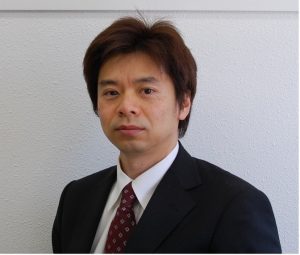
Masanori Matsuzaki received his PhD degree from the University of Tokyo in 2001. He was an assistant professor in National Institute for Physiological Sciences from 2002 to 2005. Then, he moved to the University of Tokyo. Thereafter, he was a professor in National Institute for Basic Biology from 2010 to 2016. He currently is a professor at the Department of Physiology, Graduate School of Medicine, the University of Tokyo. His primary research interests include the cortico-subcortical networks underlying motor learning and decision-making and the evolution of the neocortical information processing from the rodent to the primate. His primary research tools are two-photon microscopy and optogenetics that are applied to mice and common marmosets.
Marie Carlén, Associate Professor, Karolinska Institutet
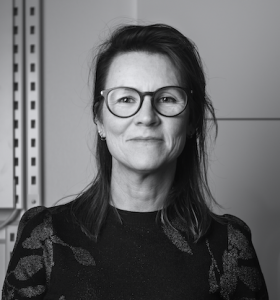
Dr. Marie Carlén is an associate professor at the Department of Neuroscience, and the Department of Biosciences and Nutrition, at Karolinska Institutet (KI). Marie received her Ph.D. in medicine from KI in 2005 and her doctoral studies focused on stem cells and neurogenesis in the adult brain and spinal cord. Marie went to Massachusetts Institute for Technology (MIT), Boston, for postdoc studies at the Picower Institute for Learning and Memory. During her postdoc Marie initiated her studies on GABA-ergic inhibition, cortical oscillations, and cognitive behavior. In 2010 Marie was recruited back to KI, and her laboratory is investigating cellular and circuit underpinning of cognition, with a focus on the prefrontal cortex. Marie’s studies have provided mechanistic insight to how gamma oscillations, a hallmark of cognitive processing, are generated and how changes in GABA-ergic cortical neurons expressing parvalbumin results in deficiencies in gamma rhythms, cognition, and behavior.
Theme 2.1: Nanocellulose and lignocellulosic materials
Coordinators
Junichiro Shiomi, Professor, The University of Tokyo
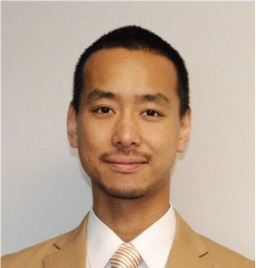
Junichiro Shiomi is Professor in Department of Mechanical Engineering, School of Engineering, the University of Tokyo (UTokyo). He received B.E. (1999) from Tohoku University, and Ph. D. (2004) from Royal Institute of Technology (KTH), Sweden. Leading the Thermal Energy Engineering Lab, he has been pursuing research to advance thermal management, waste heat recovery, and energy harvesting technologies based on nano-to-macro innovation in materials, structures, and systems.
Prof. Shiomi has been leading several projects including Core Research for Evolutional Science and Technology (JST-CREST), Precursory Research for Embryonic Science and Technology (JST-PRESTO), and New Energy and Industrial Technology Development Organization (NEDO) projects. He is Fellow of Japan Society of Mechanical Engineers and serves as associate editors of Applied Physics Express, Japanese Journal of Applied Physics, and Transactions of the Japan Society of Mechanical Engineers.
He is a recipient of the Zeldovich Medal from the Committee on Space Research, the Young Scientists’ Prize, the Commendation for Science and Technology by the Minister of Educational, Culture, Sports, Science and Technology, and the Academic award of Heat Transfer Society of Japan. He has been coordinators of the EU/Japan Interdisciplinary Global Mechanical Engineering Education (IGM) program, the Global Mechanical Engineer (GME) program between UTokyo and KTH, EPFL and Rice University, the Top Global University Project between UTokyo and Stockholm Universities.
Tsuguyuki Saito , Associate Professor, The University of Tokyo
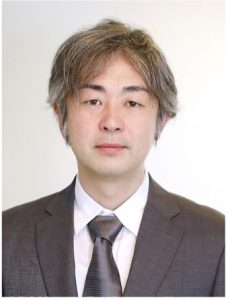
Tsuguyuki Saito is an Associate Professor at the Department of Biomaterial Sciences, Graduate School of Agricultural and Life Sciences, the University of Tokyo. He graduated from the University of Tokyo in 2003, and obtained a PhD from the same university in 2008 for his study on TEMPO-oxidation of cellulosic fibers. He has further developed this oxidation as a tool to produce cellulose nanofibers (CNF) from wood pulp in an energy-efficient way. For this discovery on CNF production, he was awarded Marcus Wallenberg Prize in 2015, and JSPS Prize in 2019. As of June 2021 the sum of times cited for his publications is approximately 15,000 citations (Web of Science), and his h-index is 56. He also worked as a visiting scientist with Prof. Lars A. Berglund at the Wallenberg Wood Science Center, KTH (2012-2013).
He is now leading a Japan Science and Technology Agency’s JST-Mirai Project for achieving the efficiency and additional values in CNF-based materials by exploiting the CNF potential, where three universities and four industrial companies participate.
Speakers
Reina Tanaka, Researcher, Forestry and Forest Products Research Institute
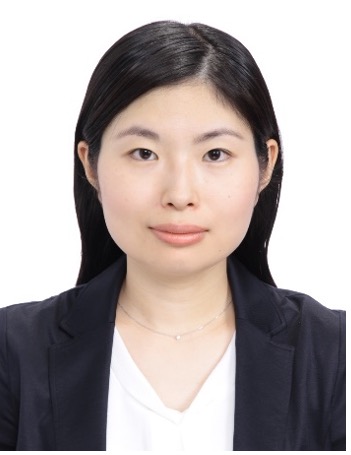
Reina Tanaka is a researcher at Forestry and Forest Products Research Institute in Tsukuba. She received her PhD in 2016 from the Department of Biomaterials Science at the University of Tokyo. She worked as a postdoctoral fellow in the Department of Macromolecular Science at Osaka University. Her research interest is fundamental rheological properties of nanocellulose.
Per Larsson, Researcher, KTH Royal Institute of Technology
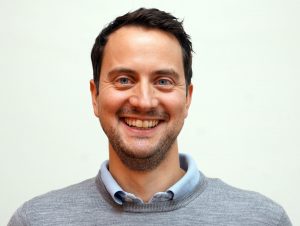
Dr. Per Larsson holds a docentship in Fibre and Polymer Technology, with a focus on fibre-based materials, at KTH Royal Institute of Technology. Dr. Larsson received his PhD at KTH in 2010, in the field of Paper Chemistry and Technology. Shortly after graduation he joined McGill University and FPInnovations within the Canadian SENTINEL project for bioactive paper, where he conducted postdoctoral research until the end of 2011, leaving Canada for his current employment as a researcher at KTH, Department of Fibre and Polymer Technology. Dr. Larsson’s research focus on linking fundamental understanding of cellulose fibres and nanofibrils, and how they can be physically and chemically modified, or combined with other materials, to improve material performance, and to facilitate novel applications, such as high performance barriers, conductive materials, ductile and thermoformable materials, etcetera.
Mengchen Zhao, Corporate researcher, Oji Holdings Corporation (also a PhD candidate, The University of Tokyo)
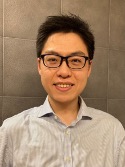
Mengchen Zhao received his master degree in Biomaterial Sciences from the University of Tokyo in 2016 for his study on nematic structuring of cellulose nanofibers (CNF). He is currently a corporate researcher at Oji Holdings Corporation, the largest pulp & paper company in Japan. During his R&D career, he received Oji’s Intellectual Property Award for his contribution on developing newly emerging phosphorylated CNF. He is also a final-year PhD candidate at the University of Tokyo, under the supervision of Prof. Tsuguyuki Saito. His current research is focusing on studying chemical composition and surface chemical structures of phosphorylated CNF.
Daniel Söderberg, Professor, KTH Royal Institute of Technology
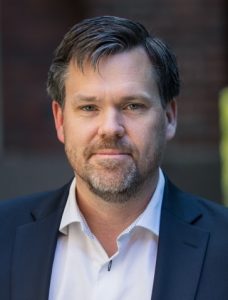
Daniel received an MSc in Vehicle Engineering (1994) and PhD in Fluid Mechanics (1999) at Royal Institute of Technology (KTH), Stockholm. He was employed at the Swedish Pulp and Paper Research Institute, which later changed name to Innventia, from 1999 to 2013. From 2009 was Deputy Director of the business area Material Processes. During the period 2008-2014 he was also Adjunct Professor at KTH. Early 2014 he became as a full-time employee at KTH, and had the position as Head of the Department of Mechanics at KTH 2016-2018. He is since 2017 Director of the national research platform Treesearch (www.treesearch.se), which is aiming at research and development of materials from Swedish forest resources. In 2020 he became Professor in Fibre processes at KTH Department of Mechanics.
His research is related to multiphase flows, specifically in connection to processes related to the manufacturing of forest-based materials, and active within the Wallenberg Wood Science Center. He is holder of several patents, including being the inventor of the Aq-vane technique that received the ATIP gold innovation award 2004, and which today is a commercially available technology.
Germán Salazar-Alvarez, Senior Lecturer, Uppsala University
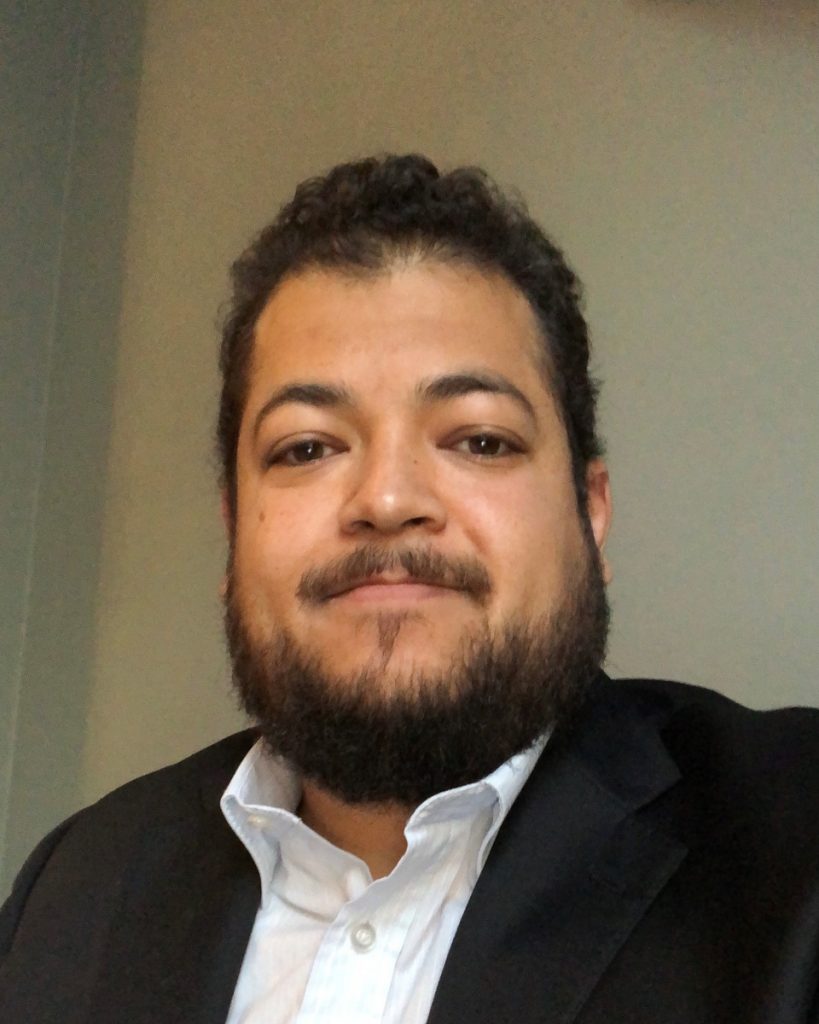
Germán Salazar-Alvarez obtained his Ph.D. degree in 2005 from the Royal Institute of Technology (KTH) and became Associate Professor at Stockholm University in 2012, where he was a group leader between 2010-2019. Since 2020 he is a senior lecturer at Uppsala University where his research activities are devoted to the synthesis, self-assembly, and characterization of nanomaterials with, e.g., magnetic, catalytic, and ion transport functionalities.
Eva Malmström, Professor, KTH Royal Institute of Technology
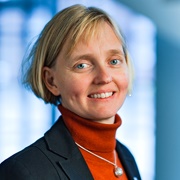
Eva Malmström, Professor Coating Technology at KTH Royal Institute of Technology, Sweden. She earned her PhD from KTH in 1996 and after one year as a post-doctoral fellow in the group of Dr Craig Hawker at IBM Almaden Research Center she returned to KTH. In 2005 she became full professor. During 2009-2016 she was the deputy president of KTH. Since 2020 she is the Director of Wallenberg Wood Science Center. Her main research interests are the utilization of controlled polymerizations to obtain well-defined polymers, polymerization-induced self-assembly, nanocomposites and interfacial engineering, nanostructuring, encapsulation and release. She is a co-founder of Polymer Factory Sweden AB.
Kazuho Daicho, Postdoctoral Researcher, The University of Tokyo
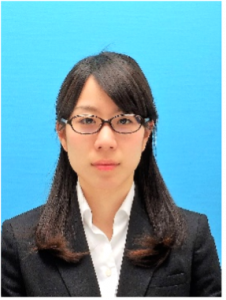
Kazuho Daicho is a JSPS postdoctoral researcher at Department of Biomaterial Sciences at the University of Tokyo, Japan. She obtained her PhD from the University of Tokyo in 2021 under the supervision of Prof. Tsuguyuki Saito for her studies on the crystallinity of cellulose nanofibers (CNFs). The current interests include understanding the contribution of interparticle interaction to the crystallinity of CNFs.
Aji P Mathew, Professor, Stockholm University
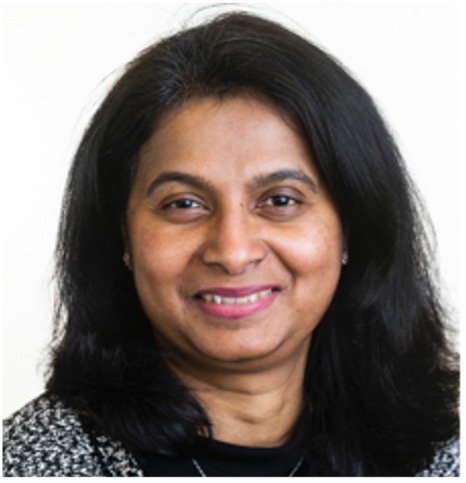
Aji P Mathew, Professor of Biopolymer based functional materials at the Department of Materials and Environmental Chemistry at Stockholm University has a PhD in polymer Chemistry and has 20 years of experience in the field of nano-cellulose. She has published >200 peer reviewed publications and has an H-index of 60 ( google scholar). Her current research focus on designing materials in nanoscale for a sustainable society and has activities that spans from isolating nano-materials from biomass, processing of bio-based materials towards various applications and their characterization. Mathew and coworkers develop composites and hybrids for use bio-based membranes for water treatment, biomedical scaffolds and catalytic materials. The group also works on green and circular processes for recycling and upcycling of textiles and bio-based membranes.
Mika H. Sipponen, Assistant Professor, Stockholm University

Mika H. Sipponen is a tenure track Assistant Professor at the Department of Materials and Environmental Chemistry in Stockholm University. He leads the Sustainable Materials Chemistry (SUSMATCHEM) research group focusing on development of lignin-based functional materials. Sipponen obtained his M.Sc. (Tech.) and D.Sc. (Tech.) degrees from Aalto University (Finland) in 2010 and 2015 under supervision of Prof. Simo Laakso. In 2016, he worked as Research scientist at VTT (Finland) followed by a three-year post as Academy of Finland Postdoctoral Researcher. He is an author of 53 peer-reviewed publications (h-index 23) and co-inventor in six patents.
Yuanyuan Li, Assistant Professor, KTH Royal Institute of Technology
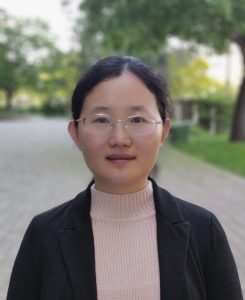
Dr. Yuanyuan Li is an assistant professor at the Department of Fiber and Polymer Technology, KTH Royal Institute of Technology, Sweden and a PI in the Wallenberg Wood Science Center. She received her doctorate from Nanjing Forestry University in China and visited University of Maryland, USA, during her doctoral study. After that she moved to KTH as a postdoctoral fellow and was then promoted as assistant professor. In 2021, she received the European Polysaccharide Network of Excellence (EPNOE) Junior Scientist Award.
Her research interests include: wood nanotechnology, nanomaterials and nano structure, green energy storage, biomaterials for functional structural materials including transparent wood.
Theme 2.2: Biomaterial for Biomedical Engineering
Coordinators
Agneta Richter-Dahlfors, Professor, Karolinska Institutet & KTH Royal Institute of Technology
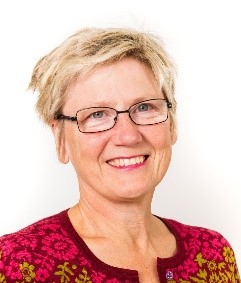
Richter-Dahlfors is the director of AIMES – Center for Integrated Medical and Engineering Sciences, an interdisciplinary research center shared between the Karolinska Institutet (KI) and KTH Royal Institute of Technology in Stockholm (KTH), Sweden. Richter-Dahlfors’ multidisciplinary competence is witnessed from her holding a Professor position in Cellular Microbiology at KI, and in Chemistry and Biotechnology at KTH. She heads a multidisciplinary research group which aims to bridge across medicine and engineering by innovating and publishing in both fields. Her broad research interest includes bacterial infection, tissue microbiology, organic bioelectronics, opto-electronic sensors for bacterial detection, and anti-fouling surface coatings to mention a few. Richter-Dahlfors is co-inventor on several patents, and is engaged in entrepreneurial activities as founder and co-founder of companies in the biotech and med-tech field.
Horacio Cabral, Associate Professor, The University of Tokyo
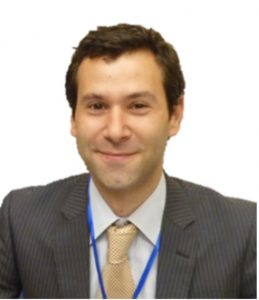
Dr. Cabral received his Ph.D. in Materials Engineering from The University of Tokyo in 2007 under the supervision of Prof. Kazunori Kataoka. Dr. Cabral was an Assistant Professor at the Center for Disease Biology and Integrative Medicine, Graduate School of Medicine, The University of Tokyo, until 2010, when he joined the Department of Bioengineering of The University of Tokyo as a Lecturer. In 2014, he was promoted to his current position.
Dr. Cabral’s major research interests relate to the development of nanomedicines for diagnosis and therapy, particularly systems directed to intractable cancers. He has made major influential achievements in the development of translatable polymeric nanocarriers. Particularly, his polymeric micelles targeting anticancer drugs to tumours have proceeded into human clinical studies, improving patients’ survival and reducing side effects. Moreover, he has accomplished seminal contributions in the understanding of the effect of nanocarrier design on activity, particularly through intratumoral and intracellular navigation. He has published more than 100 articles in refereed journals, including Nature Nanotechnology, Nature Reviews Clinical Oncology, Science Translational Medicine, PNAS, etc., and he is inventor of more than 30 patents.
Dr. Cabral has been recipient of several awards, such as the Asahi Glass Foundation and the Mochida Memorial Foundation for Medical and Pharmaceutical Research. He currently serves on the editorial board of Science and Technology of Advanced Materials, Nanomaterials and the advisory board of Macromolecular Bioscience.
Yuji Teramura, Senior Researcher, National Institute of Advanced Industrial Science and Technology
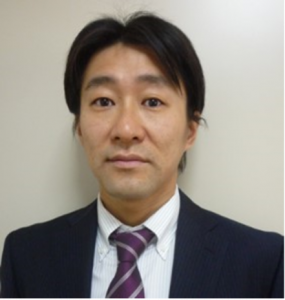
Yuji Teramura is a Senior Researcher of Cellular and Molecular Biotechnology Research Institute (CMB), National Institute of Advanced Industrial Science and Technology (AIST), Japan and also a guest Professor at Department of Immunology, Genetics and Pathology (IGP) in Uppsala University, Sweden.
He is a researcher with over 10 years of experience in an interdisciplinary research area of engineering and medicine since he received Ph.D. from Waseda University in 2004. With his original research background in polymer chemistry, he has contributed to biomedical engineering research projects such as bioartificial blood and bioartificial pancreas throughout his career. He has published more than 130 scientific papers. Since 2006 he worked at Kyoto University as an Assistant Professor at Institute for Frontier Medical Sciences together with Prof Hiroo Iwata. And with a grant from Japan Society for the Promotion of Science (JSPS), he worked at IGP of Uppsala University as a visiting researcher with Prof. Bo Nilsson since May 2010. Then, he was recruited to join the ‘StemTherapy’ project together with Prof Jöns Hilborn and Prof. Bo Nilsson. He got an Associate Professor position from Department of Bioengineering in the University of Tokyo in 2013. He became an Associate Professor (Docent) at IGP in Uppsala University since 2017, and also a guest Professor since 2019. He joined AIST since 2021.
Speakers
Taichi Ito, Professor, The University of Tokyo
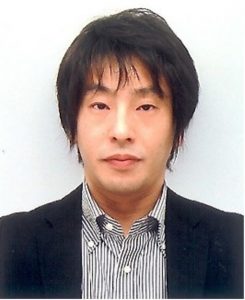
Taichi Ito is a professor of the University of Tokyo. He obtained his PhD in chemical engineering and membrane separation from the University of Tokyo in 2004. He was an associate professor of Center for Disease Biology and Integrative Medicine of Medical School from 2009 to 2020. He was concurrently an associate professor of Department of Chemical System Engineering and Department of Bioengineering of Engineering School. His research interests are the biomaterials such as hydrogels and particles. Besides, their applications to anti-peritoneal adhesion barriers, hemostats, scaffolds for tissue engineering, and drug delivery were studied.
Susanne Löffler, Affiliated Researcher, Karolinska Institutet
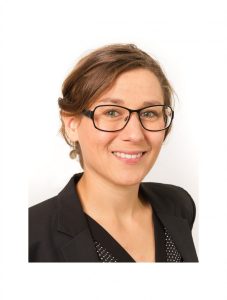
Susanne Löffler is Affiliated Researcher with Karolinska Institutet. At AIMES, she is a team leader for bioelectronics in infection with focus toward using novel materials for detection of bacteria and biofilm. She has worked as Post-doc and later Assistant Professor at the Swedish Medical Nanoscience Center using conducting polymers and organic electronics for drug release and tracking of cell-growth. He background is a PhD in Biosignal processsing and Neuroengineering and a M.Sc. in Molecular Life Sciences. Parallel to her academic track, she is actively engaged in entrepreneurial activities at the Center.
Dr. Thomas Crouzier, Researcher and Docent, KTH Royal Institute of Technology
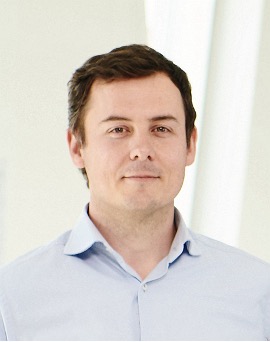
After a PhD at the University of Montpellier (France) in 2010 followed by a postdoctoral appointment at the Massachusetts Institute of Technology (USA) until 2015, Dr. Thomas Crouzier took a position as group leader at the Royal Institute of Technology (KTH, Stockholm, Sweden), where he is docent in biomimetic materials.
During his stay at KTH. Dr. Crouzier pioneered a number of “mucus engineering” approaches, which he defines as the use or modification of the mucus gel that covers our eye, nose, lungs, digestive tract, female reproductive tract, to develop new bioinspired biomaterials and address mucus-related medical conditions. For instance, the biopolymers that composed mucus (mucins) to build immune-modulating implantable biomaterials.
As a researcher and group leader, Dr. Crouzier has published 40 papers and was granted several patents. He and his group have also developed a mucus reinforcing technology which was translated into a new mechanism of action for a female contraceptive. He is now also co-founder and CSO of Cirqle Biomedical a company founded in late 2018 leveraging this mucus engineering approach to develop a new generation of hormone-free contraceptive for women.
Anna Herland, Associate Professor, KTH Royal Institute of Technology & Karolinska Institutet

Anna Herland is an Associate Professor in Biohybrid Systems at AIMES, Center for the Advancement of Integrated Medical and Engineering Sciences at Kungliga Tekniska Högskolan and Karolinska Institutet (Sweden). She received a Ph.D. in Organic Bioelectronics from Linköping Universitet (Sweden) with Olle Inganäs as a supervisor. She did postdoc fellowships at Karolinska Institutet in stem cell engineering under Ana Teixeira and at Harvard University (USA) in tissue engineering under Donald Ingber. She is a Wallenberg Academy Fellow and has over 45 peer-reviewed journal publications. Her current research focuses on creating microphysiological models of tissue, especially the central nervous system. She develops human primary and stem cell-derived systems combined with microfluidics and uses organic electronics or bioelectronics stimuli and read-outs for real-time assessment of biological functions
Yasuyuki Sakai, Professor, The University of Tokyo
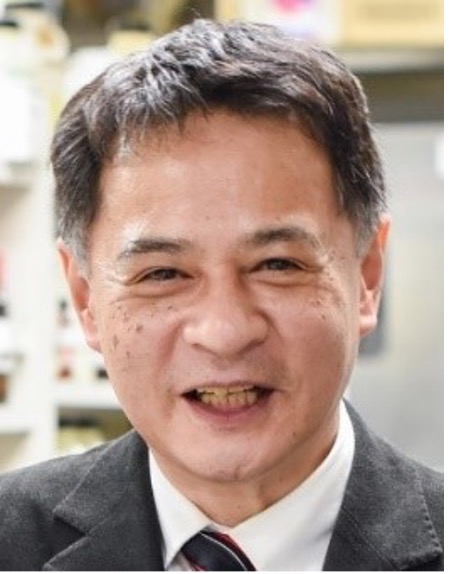
Yasuyuki SAKAI is a professor at Department of Chemical System Engineering and collaborative professor at Department of Bioengineering, Graduate School of Engineering, University of Tokyo. He received Ph. Department of Chemical Engineering, Graduate School of Engineering, University of Tokyo.
Current research topics are large-scale propagation/differentiation of stem cells, engineering of implantable 3D tissues/organs and development of mirophysiological systems for drugs and industrial/environmental chemicals. He has been placing particular importance on realization of good mass transfers and 3D organization of cells in vitro.
During his research carrier, Prof. Sakai has published over 200 original publications and received several scientific awards such as young investigator award of Society of Chemical Engineers, Japan, publication awards of Society for Bioscience and Bioengineering, Japan and JSAAE. He became an AIMBE fellow as of 2012. He is a guest professor at Technological University of Compienge, France. He is currently serving as the president of JSAAE and as the chair, Division of Biotechnology, Society for Chemical Engineers, Japan. He is working as an editorial board member of Biofabrication, Bio-Design and Manufacturing and Frontiers in Toxicology.
Aman Russom, Professor, KTH Royal Institute of Technology

Aman Russom is a Professor at KTH Royal Institute of Technology in Stockholm, Sweden. He was born 1976 in Asmara, Eritrea. He received his M. Sc. degree in Chemical Engineer with emphasis on Biotechnology in 2000 and his PhD in 2005 from KTH Royal Institute of Technology, Sweden. Dr Russom then did his postdoc fellowship at Harvard Medical School between 2005-2008. He is currently the division head of Nanobiotechnology at the department of Protein Science, School of Chemistry, Biotechnology and Health science, Science for Life laboratory, KTH Royal Institute of Technology. His research is focused on applying engineering principles and technologies, especially micro-and nanotechnology, to biomedical related problems of scientific and humanitarian interest. Professor Russom remains passionate about research and education and has pioneered several key technologies.
Takamasa Sakai, Professor, The University of Tokyo
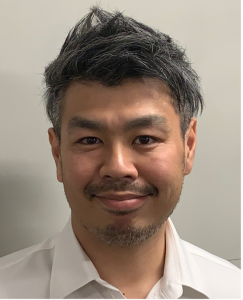
Takamasa Sakai received his BS (2002), MS (2004), and PhD (2007) degrees from The University of Tokyo under the supervision of Professor Ryo Yoshida. His doctoral study was on self-oscillating polymers and gels using Belousov-Zhabotinsty reaction. In 2007-2009, he became a Project Assistant Professor in CNBI in 2007-2009, and in CMSI in 2009-2010 to work on development of homogeneous hydrogels with Professor Ungil Chung. From 2011 to 2015, he worked as an Assistant Professor at Department of Bioengineering in the University of Tokyo. In April 2015, he was promoted to Associate Professor at the same department. He received Award for Encouragements of Research in Polymer Science from The Society of Polymer Science, Japan in 2012 and the Young Scientists’ Prize from the Minister of Education, Culture, Sports, Science and Technology, Japan in 2017. He is currently an advisory board member of Soft Matter. His current research interests include physics of polymer gels and biomedical application of hydrogels.
Erica Zeglio, Researcher, KTH Royal Institute of Technology
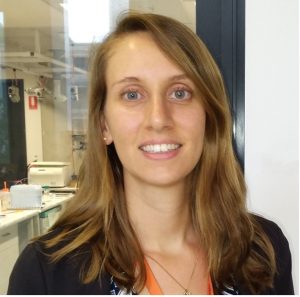
Erica Zeglio is a researcher at the division of Micro- and Nanosystems at KTH Royal Institute of Technology. She received her PhD in “Biomolecular and Organic Electronics” ” form Prof. Olle Inganäs group at Linköping University (Sweden) in 2016. From 2018 to 2020, she worked as a postdoctoral fellow funded by the Swedish Research Council at the School of Materials Science and Engineering, University of New South Wales (UNSW, Sydney). In 2020 she was selected for participation to the 70th Lindau Nobel Laureate Meeting in interdisciplinary research. In 2021 she was awarded a Marie Curie fellowship for the project BioResORGEL: Bioresorbable Organic Electronic Devices. Her current research interests center on organic electronic interfaces with biology, particularly focusing on cardiac cells, and biodegradable solutions for bioelectronic devices.
Theme 3: Education for Sustainable Development and Healthy Ageing
Speakers
Yuto Kitamura, Professor, The University of Tokyo
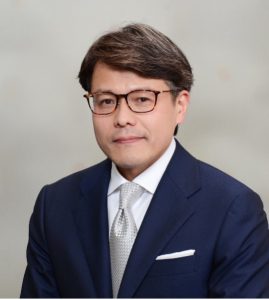
Yuto Kitamura is Professor at Graduate School of Education, The University of Tokyo. He received his Ph.D. in Education from UCLA. He has worked at UNESCO in Paris and taught at Nagoya University and Sophia University. He was the Fulbright Scholar at the George Washington University. He is currently Member of the Board of Education at Tokyo Metropolitan Government, Associate Member of the Science Council of Japan, and Special Advisor to the Rector at Royal University of Phnom Penh in Cambodia. He is specialized in comparative education and has been conducting his researches extensively on education policy of developing countries, particularly in Southeast Asia. He was awarded the JSPS Prize in 2018, one of the highest honors for young scholars in Japan.
Ulf Fredriksson, Associate Professor, Stockholm University

Dr. Ulf Fredriksson is associate professor in education and works as teacher and researcher at the Department of Education, Stockholm University, Sweden. He has earlier worked as a teacher in the Swedish comprehensive school, at the Swedish Teacher Union, at Education International in Brussels, Belgium, at the Centre for Research on Lifelong Learning (CRELL) at the Joint Research Center of the European Union in Ispra, Italy and at Mid Sweden University. His research interests include international and comparative education, reading and reading instruction, teachers and teacher education and the use of ICT in education. He has been responsible for the Swedish part of PISA (Programme for International Student Assessment) that deals with reading 2008 – 2016, lead a government inquiry about how to improve student skills in reading, writing and mathematics and been a member of the governments reading delegation.
Shu-Nu Chang Rundgren, Professor, Stockholm University

Dr. Shu-Nu Chang Rundgren is a Professor of Didactics and the research leader of the group Educational Research in Citizenship Competences (ERiCC) in Department of Education at Stockholm University. She has been Professor of Science Education (2011-2015) at Karlstad University and also a Professor II (2018-2020) in Department of Primary and Secondary Teacher Education at Oslo Metropolitan University (OsloMet) in Norway. In order to develop responsible citizenship for sustainability, enhancing teacher professional knowledge and training on teaching and assessing students’ key competences has been her research interests.
Anders Rosén, Associate Professor, KTH Royal Institute of Technology

Dr. Anders Rosén is an associate professor in Naval Architecture at the KTH Department of Engineering Mechanics. Pedagogic developer at the KTH Department of Learning. Deputy director of the KTH Global Development Hub. Current strong focus on Engineering Education for Sustainable Development. Previous contacts with Japan has for example involved teaching at University of Tokyo and a research internship at Mitsubishi Heavy Industries in Nagasaki.
Anne-Marie Boström, Senior Lecturer, Karolinska Institutet
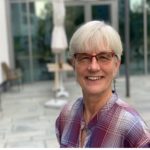
Dr. Anne-Marie Boström is RN by profession and senior lecturer at Karolinska Institutet, Dept NVS, division of nursing. She is also affiliated to Theme Inflammation and Aging as Director of Nursing Development at Unit Aging. In her position at KI she is responsible for the program for specialist nurses in older people nursing. She also supervise PhD students in this field. Her area of research, teaching and clinical practice is the promotion of evidence-based care for older adults to enhance their health and well-being.
Mr. Weida Lyu, MD–PhD student, The University of Tokyo
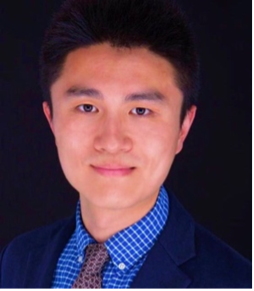
Mr. Weida Lyu is an MD–PhD student at Graduate School of Medicine, The University of Tokyo. He received his master’s degree from Graduate School of Frontier Sciences, The University of Tokyo, majored in kinematics. And from 2019, he was selected as a “Course Student” of “World-leading Innovative Graduate Study Program in Gerontology Global Leadership Initiative for Age-Friendly Society”, The University of Tokyo. From 2020, he attended the Graduate School of Medicine, The University of Tokyo, and continued his doctoral course. He is specialized in gerontology, kinematics, and nutritional science. Especially during his doctoral course, his research mainly focuses on the field of “Frailty Prevention for Community-dwelling Older Adults”.
Małgosia Malec Rawiński, Associate Professor, Stockholm University

Dr. Małgosia Malec Rawiński is Associate Professor at the Department of Education at Stockholm University, Sweden. Before she worked for many years (2006-2017) at the University of Wrocław, Poland. Her research interests include adult education, older adults learning, social and critical educational gerontology, lifelong learning, biographical approaches, local community, education of social exclusion-risk adults. In recent years, her interest and research work has focused on socio-cultural and biographical perspectives on migration. Recently, she developed the concept of biographical aging.
Theme 4: Multiscale and Multiphysics Phenomena
Theme 4.1 Large-scale Computation in Life Science with the Memorial of Prof. Fujitani
Coordinator
Shu Takagi, Professor, The University of Tokyo
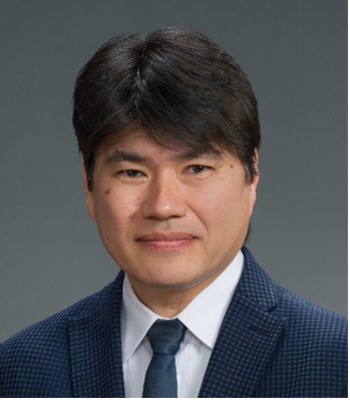
Shu Takagi is a Professor at Department of Mechanical Engineering and Department of Bioengineering, The University of Tokyo, since 2010. His areas of expertise include numerical simulations and experimental investigations on dispersed multiphase flows, especially bubbly flows and blood cell flows, medical ultrasound, hierarchical integrated simulation of human body, micro-scale heat transfer, molecular thermo-fluid mechanics and multiscale analysis of thermo-fluid phenomena. Takagi has written over 20 review articles including Annual Review of Fluid Mechanics and has given more than 30 keynote lectures in conferences. Takagi received his Ph.D. (1995) in Mechanical Engineering from the University of Tokyo. He first held the position of Research Associate at The University of Tokyo (1995- 1996) and Tokyo Institute of Technology (1996-1998) and then became an Assistant Professor (1998-2002) and Associate Professor (2002-2010) at Department of Mechanical Engineering the University of Tokyo. He was a Visiting Researcher at The Johns Hopkins University 1992-1993 and 2000-2001. He also worked as a Team Leader at RPCS, Organ and Body Scale Team, RIKEN (2007-2012).
Speakers
Makoto Taiji, Deputy Director, RIKEN

Dr. Makoto Taiji is a Deputy Director of RIKEN Center for Biosystems Dynamics Research and Team Leader of Laboratory for Computational Molecular Design in the center. He received Ph. D. in physics from Univ. Tokyo in 1992. His research interests cover computer science and computational science, especially computational biology. He is one of the pioneers in the special-purpose computers and heterogeneous computing for scientific simulations. He developed one of the first FPGA-based reconfigurable accelerator for Monte Carlo simulations of Ising spin systems. In 2006 he developed “MDGRAPE-3”, a PetaFLOPS-scale special-purpose computer for molecular dynamics simulation. He was awarded three Gordon Bell Prizes in 1995, 2006 and 2009. Recently he developed the special-purpose computer for molecular dynamics simulations, “MDGRAPE-4A”.
Takefumi Yamashita, Project Associate Professor, The University of Tokyo
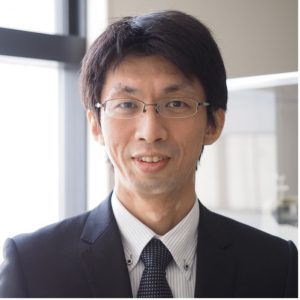
Takefumi Yamashita is a project associate professor of Research Center for Advanced Science and Technology (RCAST), The University of Tokyo. Takefumi Yamashita graduated from Kyoto University with a PhD in theoretical chemistry in 2004. After finishing a postdoc in theoretical chemistry at the University of Tokyo as a postdoctoral fellow of the Japan Society for the Promotion of Science, he went to the University of Utah and started research of the proton transfer dynamics in the biological environment by using molecular dynamics simulation.
Having continued his postdoctoral research at the University of Chicago, he joined RCAST, the University of Tokyo as a project associate professor in 2011. He expanded his research interest to the molecular recognition and computational drug design based on the accurate molecular dynamics simulation technique.
Dongig Oh, Researcher, The University of Tokyo
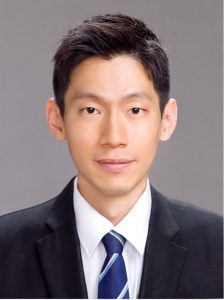
Dr. Oh just received his PhD degree in Mechanical Engineering from The University of Tokyo in September 2021 under the supervision of Professor Shu Takagi. He graduated from Okayama University in 2011 with a full-funded scholarship from The Korea-Japan Joint Science and Engineering Student Exchange Program. He received his M.S. degree in Bioengineering from The University of Tokyo in 2013 and had worked in the private sector as an CFD engineer until 2017. During his PhD, He had worked as a visiting student under Professor Luca Brandt at KTH for three months.
In his doctoral research, he performed numerical analysis of platelet margination in the red blood cells flow with various parameters in square channel. He is particularly interested in the time history of platelet margination in straight and bifurcated channel flow and its medical applications.
Theme 4.2: Interfacial Thermo-Fluid Mechanics
Coordinators
Yaerim Lee, Assistant Professor, The University of Tokyo
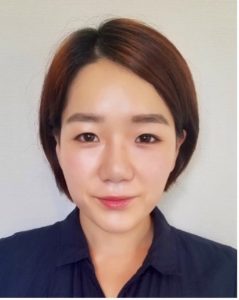
Dr. Yaerim Lee is an assistant professor in the Department of Mechanical Engineering, School of Engineering, The University of Tokyo, where she has been since 2019. She graduated from the Nagoya Institute of Technology with a B.S. in 2011 with the support of the “Japan-Korea Joint Government Scholarship Program for the Students in Science and Engineering Departments”. She received her M.S. (2013) and Ph.D. (2017) in Mechanical Engineering from The University of Tokyo with research specialty in periodic metallic plasmonic nanostructures, and their applications for optical sensors/devices. Her current research interests include 1) understanding of dynamic wetting in terms of scales and regimes using micro-nano structures with controlled surface wettability, 2) water condensation and freezing phenomenon for thermal management applications, 3) thermoelectric energy harvesting devices, 4) nano-scale liquid-solid contact line measurement with optical technique.
Timothée Mouterde, Lecturer, The University of Tokyo
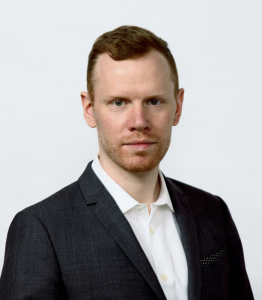
Dr. Timothée Mouterde is a Lecturer in the Department of Mechanical Engineering of the University of Tokyo. His main research interests are nanofluidics, soft matter, and wetting of micro/nano structured materials. He received his Ph.D. from the École polytechnique (France) for his work with David Quéré on nanostructured antifogging surfaces. Then he joined ENS Paris as a postdoctoral fellow in the group of Lydéric Bocquet, he focused on experimental study of water and ions transport in angstrom scale channels in collaboration with Radha Boya and Andre Geim. Before being appointed to his current position, he joined the University of Tokyo in the group of Takuro Ideguchi to develop new optical techniques to study nanofluidics.
Speakers
Wei-Lun Hsu, Lecturer, The University of Tokyo
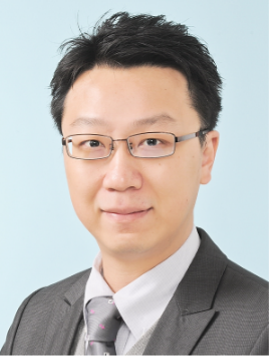
Wei-Lun Hsu is a Lecturer of Mechanical Engineering at the University of Tokyo, whose research interests lie in the areas of colloid and interface science, thermal technology and micro/nanofluidics. He received his B.Sc. and M.Sc. degrees in Chemical Engineering from National Taiwan University, Taiwan and Ph.D. in Chemical and Biomolecular Engineering from the University of Melbourne, Australia. He acquired his postdoctoral training at the Department of Mechanical Engineering, the University of Tokyo, where he later embarked on his academic career as faculty in the field of energy-related thermal engineering. Currently, his team’s primary work focuses on solid-state nanopore technology for medical diagnosis by single molecule sensing, energy conversion from thermal and salinity energy sources to electric power and nanobubble generation for electronics cooling applications.
Dr. Hsu has been the principal investigator of a Grant-in-Aid for Early-Career Scientists and Grant-in-Aid for Young Scientists under the Japan Society for Promotion of Science as well as a GAP fund project supported by the University of Tokyo. Since 2019, he has been serving as an Editorial Board Member of Results in Chemistry, Elsevier. He is a recipient of the Clive Pratt Award by the University of Melbourne in Australia, Young Scientist Award by the International Association of Advanced Materials in Sweden, Analyst Award by the Royal Society of Chemistry in the United Kingdom and Online Teaching Award by the University of Tokyo in Japan.
Junya Onishi, Project Assistant Professor, The University of Tokyo
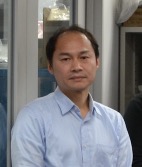
Junya Onishi is a project assistant professor at Institute of Industrial Science, the University of Tokyo. He received his Ph.D. degree from the University of Tokyo in 2004. Then, he worked as a research associate at the University of Tokyo (2004-2006), a project researcher at the Nagoya Institute of Technology (2006-2007), and a visiting researcher at the Toyota Central Research and Development Laboratories (2007-2010), and joined the current organization as a project researcher in 2011. His research interest includes the development and application of computational methods for solving fluid mechanical problems in industrial fields.Currently, he is working on numerical analysis of wetting properties of patterned surfaces, especially focusing on spontaneous capillary flow inside the patterns.
Theme 5: Hybrid Infrastructure for Urban Sustainability
Coordinator
Kensuke Fukushi, Professor, The University of Tokyo
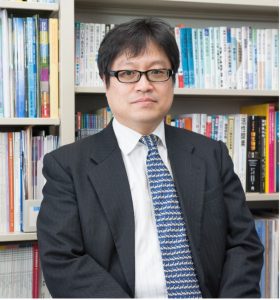
Kensuke Fukushi is an Academic Programme Officer at the United Nations University Institute for the Advanced Study of Sustainability. He is also Professor and Vice Director of the Institute for Future Initiatives (formerly Integrated Research System for Sustainability Science, IR3S), The University of Tokyo (UTokyo).
Kensuke is a civil-environmental engineer and holds appointments at the UTokyo Graduate Schools of Engineering and Frontier Sciences, where he organizes the Urban Sustainability Science Laboratory. He is one of the founding faculty members of IR3S and achieved remarkable progress in promoting sustainability science in various academic communities. He serves as an Editorial Advisor of Sustainability Science Journal, the Science Planning Group member of Asian Pacific Network for Global Change Research, and Distinguished External Faculty member of Asian Institute of Technology. He received B.S. and M.S from Tohoku University in Civil Engineering, and Ph.D. from University of Utah in Civil Engineering.
Speakers
Jian Pu (Assistant Professor, Institute for Future Initiatives (IFI), The University of Tokyo)
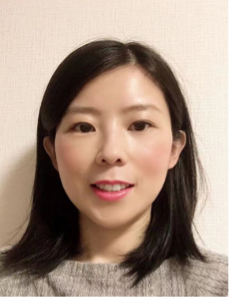
Dr. Pu graduated her doctoral course from The University of Tokyo in March 2011. Her research background is environmental engineering. Her research is mainly on waterborne infectious diseases, environment and natural resources, sustainability research, etc. Her recent research activities are related to “Potential impact of climate variability on norovirus incidence and seasonality: water ecology and human health” project (funded by Asia-Pacific Network for Global Change Research; APN), which aims to better characterize the possible influence of climate variables on the occurrence and spread of norovirus-associated gastroenteritis infections in both temperate and tropical countries. She also started working on the project “Transboundary transport of microplastics through atmospheric and oceanic currents in East Asia” financed by APN. This project will, for the first time, systematically study transboundary transport of MPs considering the impact from both atmospheric and oceanic currents. The findings will provide insightful knowledge of MPs in large-scale transport and contribute from the science perspective to the development of control and mitigation policy options.
Timos Karpouzoglou, Researcher, KTH Royal Institute of Technology
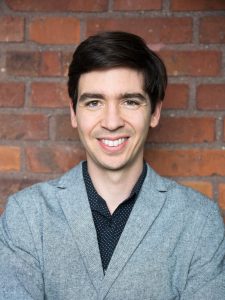
Timos Karpouzoglou is based at KTH, Division of History of Science, Technology & Environment. His research focuses on urban water infrastructure and is informed by social sciences and the humanities. His research has a strong international character as he has carried out in-depth water research in diverse socio-political contexts in part of South Asia, East Africa and Latin America. During this time he has also held research positions at Wageningen University & Research, the Stockholm Resilience Centre, SPRU and the STEPS Centre, at University of Sussex.
Timos primarily focuses on the socio-technical character of water systems, actor relationships with water systems, and the urban political ecologies of water infrastructure.
He currently leads research and collaborations with various academic partners within Sweden and in other countries through ongoing research projects. In the project WaterFlow awarded to Formas Future Research Leaders, he leads research on conflict(s) and cooperation between formal and informal urban water regimes in Asia and Africa. He is also leading the NATURE project that explores nature-society relations through urban water infrastructure collaborating with art institutions, financed by Riksbankens Jubileumsfond. He is further a co-investigator of the SEQWENS project which is a strongly interdisciplinary endeavour involving KTH researchers, the Swedish public and private sector partners exploring sustainability and equity of water and energy systems during actor-driven disruptive innovation in Sweden, also financed by Formas.
Timos is an active collaborator of the KTH WaterCentre at which he has also previously been involved with as Research Coordinator.
He regularly teaches at KTH on topics including energy and water systems, political ecology and water management.
Petter Ljungman, Associate Professor & Researcher, Karolinska Institutet
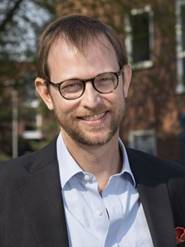
Ljungman is an MD and currently Associate Professor and Research Group Leader at the Unit of Environmental Epidemiology, Institute of Environmental Medicine, KI, and Senior Consultant of Cardiology at the Department of Cardiology, Danderyd Hospital outside Stockholm.
Ljungman has been investigating the cardiovascular effects of air pollution exposure in national as well as in European collaborations since 2004. This was initiated by a 2 year postdoc at Harvard Medical School, researching vascular effects of air pollution in the Framingham Heart Study.
His current research interests center around cardiovascular effects of environmental exposures including air pollution, ambient noise as well as ambient temperature. Recently, the research is expanding to air pollution research efforts into low and middle income countries that are experiencing extreme levels of air pollution and rapid urban development. Together with colleagues at Harvard and the Public Health Foundation of India, he is heading a large-scale effort to comprehensively assess PM2.5 levels across India and collaborate with Indian health researchers to conduct health association studies for a range of outcomes. Ljungman believes an important future direction is to harness the opportunities to prevent non-communicable disease through creating healthy urban environments, translating research into policy.
Yoshihiro Shibuo (Project Associate Professor, Department of Urban Engineering, The University of Tokyo)
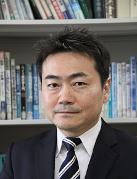
Dr. Shibuo received M.D.S. (Earth Science) from Eberhard Karls Universität Tübingen, Germany, and Ph.D (Physical Geography) and Ph. Lic (Physical Geography) from Ph.D Stockholm University, Sweden.
His research interest is urban hydrology, watershed Water Environment, water Disaster Risk Management. He has been doing projects related to river flooding, inland flooding, storm surge, combined water hazards, risk assessment, and so on. His research in The University of Tokyo is to develop advanced urban inundation prediction technology using advanced technologies such as radar rainfall and IoT sensing, as well as methodologies for providing information to support the decision-making of relevant departments at the time of a disaster. The research aims to contribute to the realization of a society that is resilient to water-related disasters by implementing social implementation of R & D technology in cooperation with participating cooperation organizations.
Xuemei Bai (Visiting Professor, Institute for Future Initiatives (IFI), The University of Tokyo)
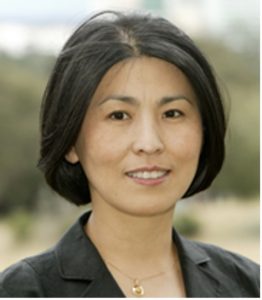
Prof. Bai is a Distinguished Professor, Urban Environment and Human Ecology, Fenner School of Environment and Society, Australian National University. She is also a Visiting Professor of Institute for Future Initiatives, The University of Tokyo, Japan.
Professor Bai’s research focuses on several frontiers of urban sustainability science and policy, including drivers and consequence of urbanization, structure, function, processes, and evolution of urban socio-ecological systems, urban metabolism, urban sustainability experiments and transition, cities and climate change, and urban environmental policy and governance, and cross scale translations between planetary level boundaries and targets into cities. Professor Bai authored/co-authored over 100 publications, including several in Nature and Science. She served as a Lead Author for the Millennium Ecosystem Assessment, the Global Energy Assessment, and is a Lead Author for IPBES Global Assessment and IPCC AR6.
Marcin Pawel Jarzebski (Project Assistant Professor, Tokyo college, The University of Tokyo)
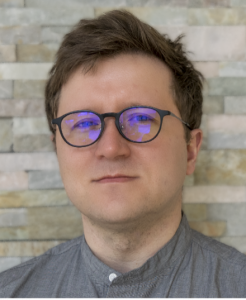
Dr. Marcin is an environmental scientist and sustainability science expert from the training, with a strong focus on interdisciplinary research and education. In his doctoral research, he was exploring the resilience pathways of community forestry, with a case study of indigenous and non-indigenous communities in the Philippines.
As post-doctoral research, he has been engaged in two major projects (a) Food Security Impacts of Industrial Crop Expansion in Sub-Sahara Africa (FICESSA), and (b) Climate change adaptation capacity development processes in Southeast Asia. In the climate change adaptation project, he worked on a qualitative approach in which we recognize the priorities of local stakeholders and the urgency of different sectors that are affected by climate change and modeling on human health impacts caused by heat.Currently, he expanded his interests into a sustainable future society with attention to ageing and shrinking, from the perspective of not only challenges but also opportunities that these demographic processes cause. He is also interested in the ecological identity of Japanese people.
Osamu Saito (Visiting Associate Professor, Institute for Future Initiatives (IFI), The University of Tokyo)
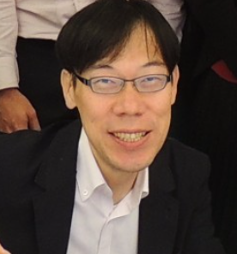
Dr. Osamu Saito is an Academic Programme Officer, UNU – Institute for the Advanced Study of Sustainability (UNU-IAS), and Visiting Associate Professor, the University of Tokyo. As an expert in the field of biodiversity and ecosystem services, he has been working on the interlinkages between ecological, human and social systems through sustainability science approaches.His research experiences include socio-ecological studies on the ecosystem services provided by traditional rural production landscapes (Satoyama) in both Japan and other Asian countries. As a coordinating lead author (CLA) of the chapter on the conceptual framework, he significantly contributed to Japan Satoyama-Satoumi Assessment(JSSA) which is one of the sub-global ecosystem assessment conducted in Japan from 2006 to 2010. At UNU he has been also actively promoting various activities for Intergovernmental Platform on Biodiversity and Ecosystem Services (IPBES) for the last three years. He has been a managing editor of the Sustainability Science journal published by Springer since 2011.

